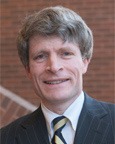Today on Slate’s Big Money blog — a possible reason why suspicious Madoff investors may have kept their mouths shut:
Bayou [Hedge Fund Group] was a fund that blew up and was revealed in 2005 to be a fraud with some $450 million in investor losses. Bayou is memorable for two reasons. One is founder Samuel Israel III’s staged suicide. (He eventually rose from the dead and turned himself in after prosecutors went after the girlfriend who helped him disappear.) The other is a legal precedent set in the Bayou case that should scare the heck out of anyone who once invested with Madoff but who managed to get out safely in the last few years: Any investors who managed to take out profits from a fund like Bayou before the fraud was revealed had to give the money back. [Emphasis original]
The Bayou ruling seems to require that any investor or fund manager who learned that Madoff was bogus and (a) pulled out their money and/or (b) notified the authorities, would be required to share with other burned investors every single penny they ever earned from the investment.
Not only that, but any investment firm or fund that ever invested with Madoff, or invested with a firm or fund that invested with Madoff, might have to return any money they ever made. This would be quite an incentive for a suspicious investor to just keep quiet and hope for the best.
Thanks to the Bayou court decisions, however, the moment Madoff was revealed as a fraud, any money that these funds-of-funds would have managed to take back would become gains that have to be given back to be redistributed among all the losers in the Madoff scheme.
Read the whole story.












































